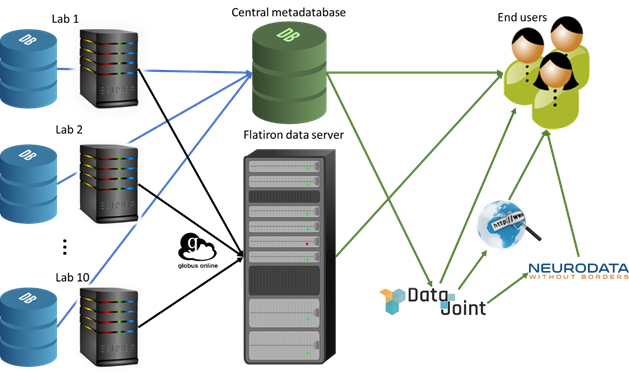SC.IO
Scientific Input-Output;
Science-Open

Gonçalo Lopes
| Programming languages, interactive data manipulation, teaching, history of science |
| Translating software development practices into scientific research workflows |
| Connecting a critical mass of like-minded scientists willing to create more healthy and productive scientific ecosystems |

André Marques-Smith
| Accelerating research and progress by improving transparency and distributing collaboration. Rethinking scientific structures to incentivize healthy behaviour. |
| Ideas and conceptual prototypes help achieve these aims; e.g. a digital editor for soliciting peer review for your preprint |
| Web/software development technical expertise; Best-practise examples for every stage of science in the open |
Danbee Kim
| What are your interests? Anarchy, capoeira, circus, education, and permaculture |
| What can you contribute? Science communication and public outreach, cross-disciplinary collaborations, expertise on cephalopods (octopus, cuttlefish, and shrimp), and fresh homemade bread |
| What are you looking for? A way to live a scientifically and artistically rich life without suffering the negative consequences of modern urban life |

Niccolò Bonacchi
| 10 Solving problems, figuring out how things work (mainly the brain), build new simple things that also work, and combine these new things to: Solve bigger problems, figure out how bigger things work, build new slightly more complicated things that also work, combine them to solve bigger… |
| 20 Ideas, past experience, snarky remarks, code, data, and work. |
| 30 Critical mass. The singularity. New cool things to learn. Similarly inclined people. Solving problems together, GOTO 10 … |

André Maia Chagas
|
|
|
Andrew York
| I’m interested in paradox, invention, and smart enthusiastic people. I’m good at physics, optics, microscopy, building, and coding. |
| I can contribute a solid technical and social commitment to re-inventing scientific publishing. My funding is stable and my employees are permanent, so I can tolerate an unusually high level of professional risk, for a scientist. I can be the guy who jumps first to see if the parachute opens. |
| I’m looking for a community of other potential jumpers for shop talk, tip-trading, and camaraderie. |
Nokome Bentley
|
|
|